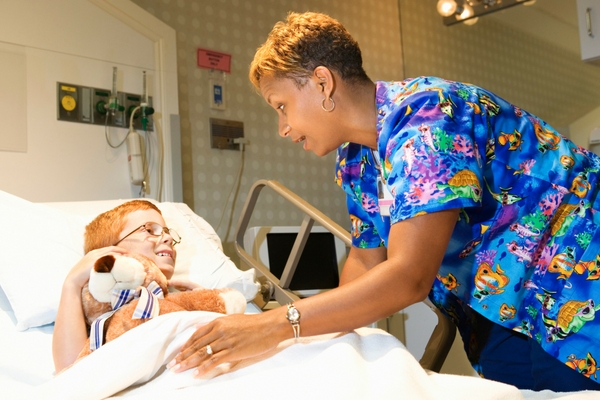Are you exploring a PCT career? If so, you may have noticed that patient care technician skills are versatile and varied. A PCT will need medical and technical skills, but also emotional and soft skills. If you’re feeling overwhelmed with how to learn these skills, exploring an accredited education program or school in your area is a great option. But before you look at PCT programs, it’s important to take a closer look at the different skillsets a PCT job requires.
Learn more about the Dorsey College Patient care technician program today!
Soft skills
When considering a PCT career, know that soft skills are as important as technical ones. These soft skills are all about becoming an advocate for the patients you work with. They are also about working as an effective member of a larger team. These soft skills for patient care technicians are key to your career success. They will help you keep a clear head in times of stress. Some soft skills a PCT needs include:
- Compassion and patience. A PCT who has empathy for their patients’ pains, struggles, and needs makes a difference.
- Flexibility. Emergency situations are unpredictable and dynamic. A patient’s needs can also change daily and hourly. As a PCT, you’ll need to learn how to adapt to changing priorities and shifting communications.
- Cultural competence. As a PCT, you’ll treat diverse people with different cultural beliefs and backgrounds. Being respectful of diversity and able to provide culturally sensitive care is essential.
- Time management. From organizing your workload to prioritizing tasks, there are many situations where this is a critical skill for a PCT.
Technical skills
You can learn some soft skills outside of the classroom. But there are many technical skills for patient care technicians that you will need to learn in an accredited program or at an accredited school. Some of the technical skills needed to become a patient care technician include:
- Performing EKGs to track a patient’s cardiac activity
- Measuring and monitoring a patient’s vital signs (like temperature, blood pressure, and pulse rate)
- Basic life support procedures like CPR, first aid, and recognizing different medical emergencies
- Collecting blood for laboratory testing
- Helping patients with mobility issues and daily tasks
- Keeping records of patients and their changing medical needs
- Infection control and other cleaning practices to keep the workplace sanitary
- Operating medical equipment such as suction machines, glucose meters, and blood pressure monitors
- Using software applications for things like email, and record keeping
Team player
Communicating with your healthcare team is an important part of a PCT’s job. You’ll be working with doctors, nurses, therapists, and other health professionals daily. Working collaboratively and communicating effectively are key skills you’ll need to practice.
What does this look like in a real-life setting? The routines and duties and skills of a PCT will vary depending on where they work. It might include participating in meetings when your shift begins. This is a way to give or receive updates on how patients are doing and what their daily treatment goals are. Another example comes at the end of the shift. Instead of just clocking out and going home, PCTs make sure they record their observations for the next team before they stop working.
Works well in a fast-paced environment
At any point during a shift as a patient care technician, you may experience a “code blue” (cardiac arrest). Other emergencies may come in, too. This is where you’ll need the life-saving measures you learn in a PCT education program.
Other instances where PCTs must work well in fast-paced environments:
- Helping with patient triage
- Working on multiple floors or in many areas of expertise
- Combining tasks like sanitizing and restocking materials or supplies
Stress management
As you can probably tell from the skills needed by a PCT, stress management is important! Patient care technician careers can be more stressful than other careers out there. It’s important to have stress management skills in place.
Enroll in a program that can prepare you for a PCT career!
With so many skills involved in a patient care technician career, it’s important to find the right program! Here are three questions to ask yourself as you explore PCT programs:
- Does the PCT program I’m looking at include an in-person component to help me practice the technical skills I learn?
- Is the program accredited or is the school accredited? This shows any potential employers that you gained a quality PCT education.
- Does the program include coursework in phlebotomy, basics of nursing care, and EKGs? These are key components for learning technical skills required for patient care technicians.
Explore Dorsey College’s patient care technician program!
If you’re considering a patient care technician career in Michigan, Dorsey College offers a robust program! It aims to teach you all the key patient care technician skills you’ll need for success. If you are ready to enroll in a PCT program, explore what Dorsey College has to offer today!

